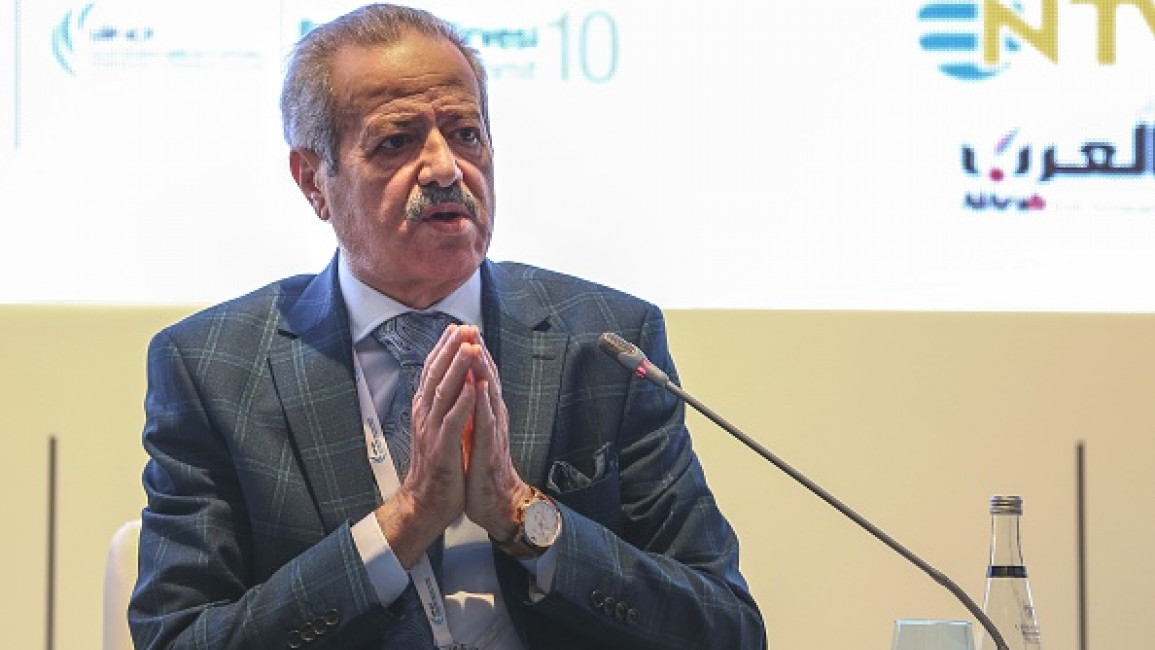From astronaut to refugee: Syria's Muhammed Faris dies aged 72
Renowned Syrian astronaut Muhammed Faris passed away on Friday aged 72, the opposition Syrian National Coalition confirmed, following an illness.
Faris died at Sanko Hospital in the Turkish city of Gaziantep, where he had been residing for over a decade.
Aleppo-born Faris was the first Syrian and second Arab overall in space, having flown as a cosmonaut with the Soviet space programme Interkosmos, accompanied by two Russian cosmonauts on the spaceflight Soyuz TM-3 in July 1987, as part of Soviet-Syrian space cooperation initiative.
Only one Arab had been to space before, Sultan Bin Salman Al Saud, a member of the Saudi royal family. Al Saud however was not a professional pilot and astronaut like Faris.
The Syrian National Coalition described his passing as "a great loss for the Syrian people and the Arab world," stressing that "his legacy and achievements will keep him alive and inspiring in the hearts of generations," as cited by The New Arab's affiliate Syria TV.
During his mission, Faris went to the Mir space station, located in planet Earth's low orbit. He spent 7 days, 23 hours and 5 minutes in space, and was credited with carrying the first soil from the Earth into space, which he did via a vial of dust from Damascus.
He went on to complete 13 experiments in space, with research spanning chemical, medical, and space monitoring fields.
In an interview with the UK's Guardian newspaper in 2016, Faris said is time spent in space "changed his life".
Syria lost one of our national heros embodying real humanity, intelligence and actual nationalism to a free Syria, one that is free of tyrants.
— Celine (@celinekasem) April 19, 2024
Astronaut Muhammad Fares from Aleppo, who is the first Syrian, Arab and Muslim to enter space without nepotism, money or a title. A… pic.twitter.com/FdU2iYuMhe
Faris was a graduate of Syria's Military Air Academy and held several high ranks in the Syrian Air Force, including Major General.
Following his stint in space and return to Syria, he wanted to establish a national space institute in his home country to enable Syrians to learn about astronomy, but this was firmly rejected by then-Syrian president Hafez al-Assad.
Faris, however, was determined to provide an opportunity to educate Syrians on science and astronomy, "to pass on this privileged view I had been given".
Dubbed the 'Neil Armstrong of the Arab World', Fares joined the Syrian opposition following the outbreak of the Syrian uprising against Bashar al-Assad in 2011. The Syrian regime went on to brutally suppress peaceful pro-democracy protests and triggered a civil war which killed over half a million Syrians and pushed millions more into exile and displacement.
Faris joined the protests, before deciding to leave the country in 2012 for Turkey, where over 3.5 million Syrians have sought refuge.
While in Turkey, Faris participated in conferences across Turkish universities, and was consulted on issues concerning Syrian refugees in the country by the Turkish government. He also took part in many protests in Turkey against the Assad regime.
Faris, one of the highest-ranking defectors from the Syrian regime, was also a member of the Syrian National Coordination Committee for Democratic Change, an anti-violence, anti-Assad grouping that meets in Spain, The Guardian said.
Faris, who came from a humble background, was considered a national hero in Syria. His achievements were greatly lauded in his country and roads and schools were named after him.
"My dream is to sit in my country with my garden and see children play outside without the fear of bombs," he said in 2016. "We will see it, I know we will see it. I just wanted a better future for my children, but external influence on the revolution has messed it all up. It’s very difficult."



![South Sudan famine [AFP] South Sudan famine [AFP]](/sites/default/files/styles/image_330x185/public/media/images/5FED4B35-6177-43AD-844A-5C63373FCF89.jpg?h=d1cb525d&itok=TC12KIPv)